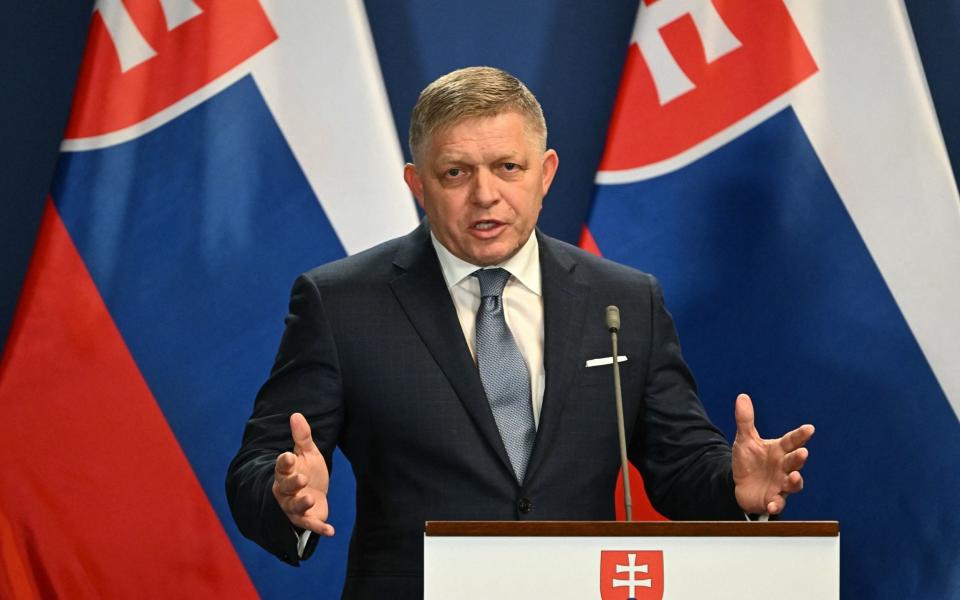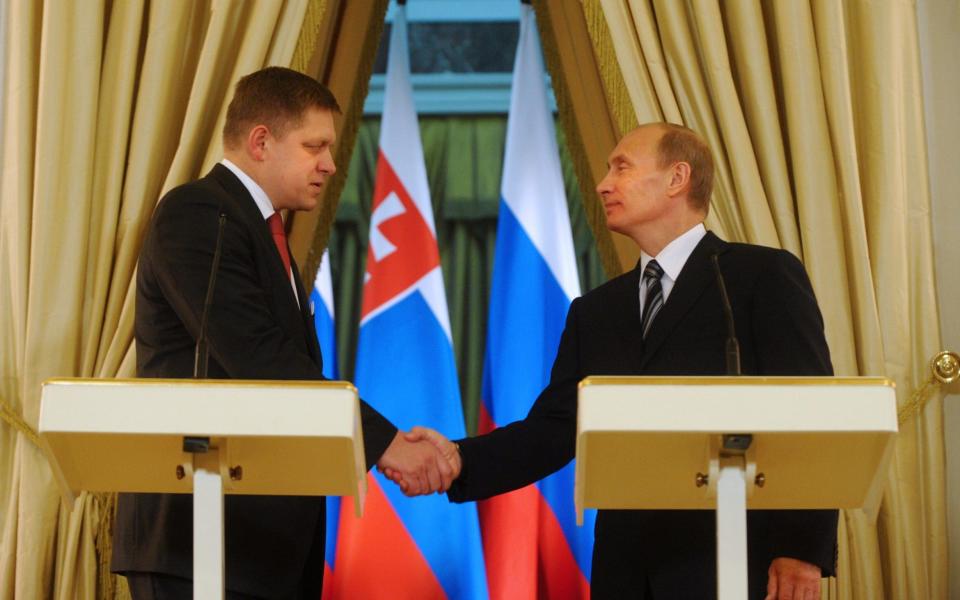How Robert Fico turned Slovakia into one of Russia’s only allies
- Oops!Something went wrong.Please try again later.
- Oops!Something went wrong.Please try again later.
Robert Fico, the Slovakian prime minister who was shot on Wednesday, has presided over a shift from pro-Western values to growing sympathies with Russia since his election victory last September.
The Left-wing populist has steered his Smer (Direction-Social Democracy) party strongly against military support for Ukraine, vowing in a pre-election interview with The Telegraph last year that he would cut arms supplies to Kyiv altogether.
“It is better to negotiate peace for 10 years and stop military operations than to let the Ukrainians and Russians kill each other for another 10 years without results,” he said.
Traditionally a pro-Western party, Smer under Mr Fico pivoted during the last campaign towards being softer on Vladimir Putin, with the 59-year-old calling for an end to sanctions on Russia as they were driving up the cost of living for ordinary Slovaks.

He has capitalised on mixed views about the benefits of Nato in Slovakia, where only 51 per cent would vote to remain in the alliance if there were a referendum, according to recent polls. As many as 60 per cent of Slovaks aged 25 to 64 also want to stop arming Ukraine, according to another study.
Mr Fico’s election victory had stoked fears of an about-turn from Bratislava on support for Ukraine, as his predecessor provided Kyiv with Howitzers, took in tens of thousands of Ukrainian refugees and was the first leader to send Mig-29 fighter jets. However, he did publicly condemn the Russian invasion of Ukraine in 2022 and has also stated his opposition to the annexation of Crimea.
Born in northwest Slovakia in 1964, Mr Fico was first elected as an MP in 1992 for the Party of the Democratic Left, the successor of the Communist party.
After switching to Smer, he won the 2006 general election, and served again as leader from 2012-2018, at which point he resigned amid a political crisis triggered by the murder of Ján Kuciak, an investigative journalist.
Since the invasion of Ukraine, he has grown much closer to Viktor Orban, the increasingly Putin-friendly leader of Hungary.

A recent profile in Politico suggested that Mr Fico “hated” Ukraine because he was forced in 2009 to wait more than three hours in Kyiv for a meeting with his Ukrainian counterpart about natural gas supplies.
He was then embarrassed to discover that journalists had been invited to what he thought would be a private meeting, leaving him “red with anger”, according to one insider.
After being snubbed in Kyiv, Mr Fico flew to Moscow where Putin rolled out the red carpet at a greeting ceremony in St George’s Hall. From that point on, he “began to take an openly anti-Ukrainian position”, said Alexander Duleba, a Slovak foreign policy analyst.
Mr Fico also publicly clashed in March 2024 with the British ambassador to Slovakia, who had posted a video message taking the Slovak leader to task for criticising EU member states’ support for Ukraine.
Prior to Mr Fico’s election, one analyst said Slovakia had been “one of the most fierce supporters of Ukraine within Nato”. Now its position under Mr Fico looks far more uncertain.

